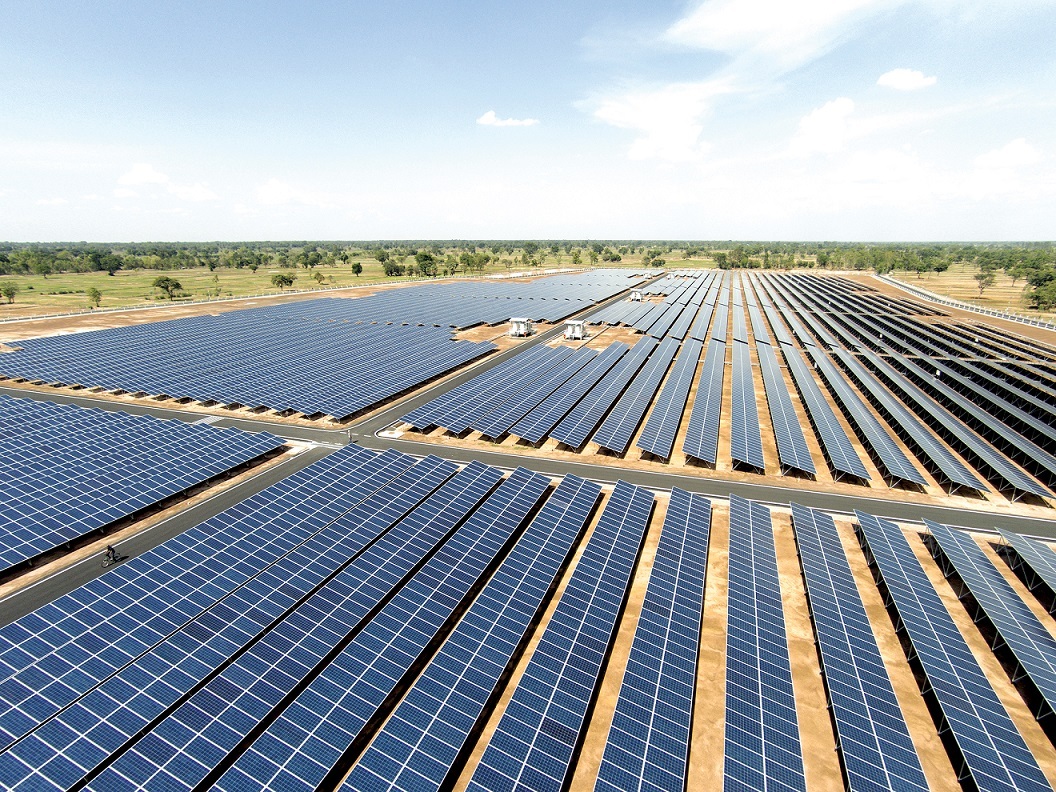Sanford C Bernstein report. Reliance may earn $10-15 bn revenue from new energy biz by 2030
Reliance is building a green energy business to supply the equipment India will need for its green energy revolution

According to a report by Sanford C Bernstein, Reliance Industries, led by billionaire Mukesh Ambani, has the potential to earn $10-15 billion from its new energy business by 2030. The company’s new energy business encompasses various clean energy technologies, including solar power, hydrogen, battery storage, electrolyzers, and fuel cells.

Reliance Industries sees clean energy as a significant growth opportunity and has plans to invest $2 trillion in India’s clean energy sector through 2050. The Indian government has set ambitious targets for the renewable energy sector, aiming for a solar capacity of 280GW and 5 million tonnes of green hydrogen production by 2030.
However, the report highlights that Reliance Industries may need to seek acquisitions or partnerships to compensate for its limited expertise in technology within the clean energy sector. Collaborations with technology-driven companies or acquisitions of relevant businesses would help Reliance gain the necessary knowledge and capabilities to fully leverage the opportunities in the clean energy market.
Reliance Industries aims to diversify its business portfolio and tap into the growing demand for sustainable and renewable energy solutions by venturing into the clean energy space. The company’s strategic focus on clean energy aligns with India’s broader efforts to transition to a greener and more sustainable economy.
It’s important to note that this information is based on a report by Sanford C Bernstein, and the actual outcomes and progress of Reliance Industries‘ new energy business will depend on various factors, including market dynamics, technological advancements, and policy developments in the clean energy sector.
According to the report by Sanford C Bernstein, the brokerage expects electric vehicle (EV) penetration to reach 5% for both passenger and commercial vehicles and 21% for two-wheelers by 2030. This indicates a significant growth in the adoption of EVs across different vehicle segments.
In addition, the report suggests that clean energy, including EVs, could have a total addressable market (TAM) of $30 billion in 2030, compared to the current TAM of $10 billion. This indicates the potential for substantial market expansion and investment opportunities in the clean energy sector.

Looking ahead to 2050, the brokerage estimates that the TAM for clean energy could reach $200 billion, showcasing the long-term growth potential in the sector. It also predicts cumulative spending of $2 trillion, indicating the scale of investments required to meet India’s clean energy goals and drive the transition towards sustainable and renewable energy sources.
These estimates reflect the growing awareness and importance of clean energy in addressing environmental concerns and reducing carbon emissions. The Indian government’s focus on promoting clean and sustainable technologies, along with favourable policies and incentives, is expected to drive the adoption of clean energy solutions, including EVs, in the coming years.
It’s important to note that these projections are based on the analysis and forecasts of Sanford C Bernstein. The actual market outcomes and investment figures may vary depending on various factors, such as technological advancements, policy developments, consumer preferences, and market dynamics.
Nevertheless, the report highlights the significant growth potential and investment opportunities in the clean energy sector, indicating a shift towards a more sustainable and environmentally friendly future for India’s transportation and energy systems.
Reliance Industries is making significant strides in building a green energy business to support India’s transition towards renewable energy sources. The company has pledged to become a net-zero carbon emission company by 2035, which is ahead of the targets set by other energy companies in the region.
By committing to net-zero carbon emissions, Reliance Industries is demonstrating its strong environmental commitment and its intention to play a leading role in India’s green energy revolution. The company recognizes the urgency of addressing climate change and aims to align its operations with sustainability goals.
As part of its green energy business, Reliance is focusing on supplying the necessary equipment and technologies that will be required to support India’s renewable energy sector. This includes the production of solar panels, batteries, and other clean energy solutions. By investing in the manufacturing and supply chain infrastructure for green energy equipment, Reliance aims to contribute to India’s self-reliance in the renewable energy sector.
Reliance’s early commitment to becoming net-zero carbon emission company by 2035 showcases its proactive approach towards sustainability and climate action. By setting an ambitious timeline, the company is sending a strong signal to other energy companies and stakeholders in the region that clean and sustainable practices are crucial for the future of the energy industry.
It’s important to note that achieving net-zero carbon emissions by 2035 will require significant investments in renewable energy projects, technological advancements, and operational efficiency improvements. Reliance’s commitment demonstrates its determination to leverage its resources and expertise to drive the green energy transition in India.
Overall, Reliance Industries’ focus on building a green energy business and its commitment to becoming net-zero carbon emissions company by 2035 highlights its dedication to sustainability and its efforts to support India’s green energy revolution.




